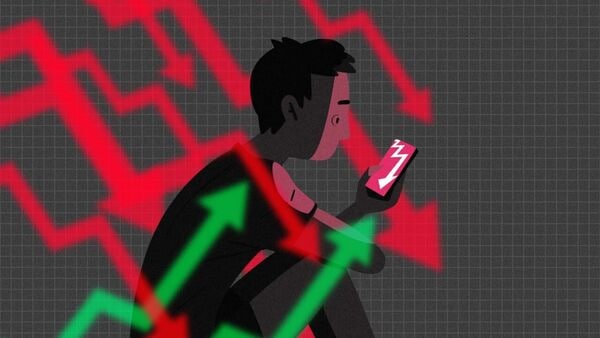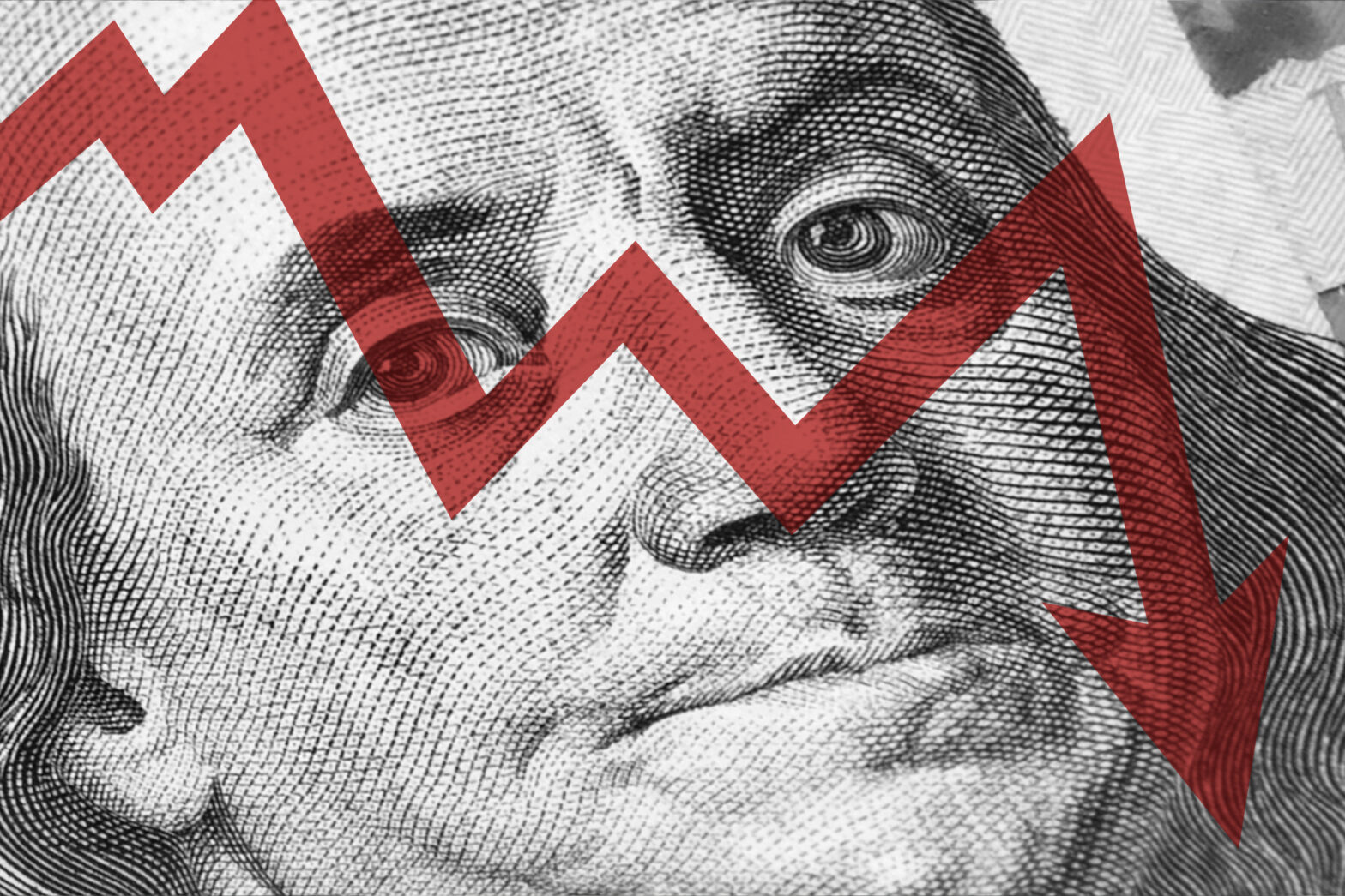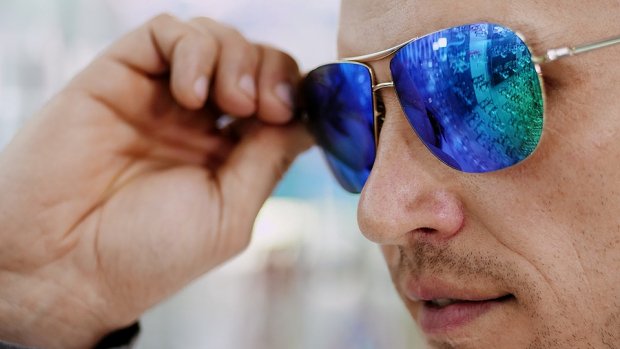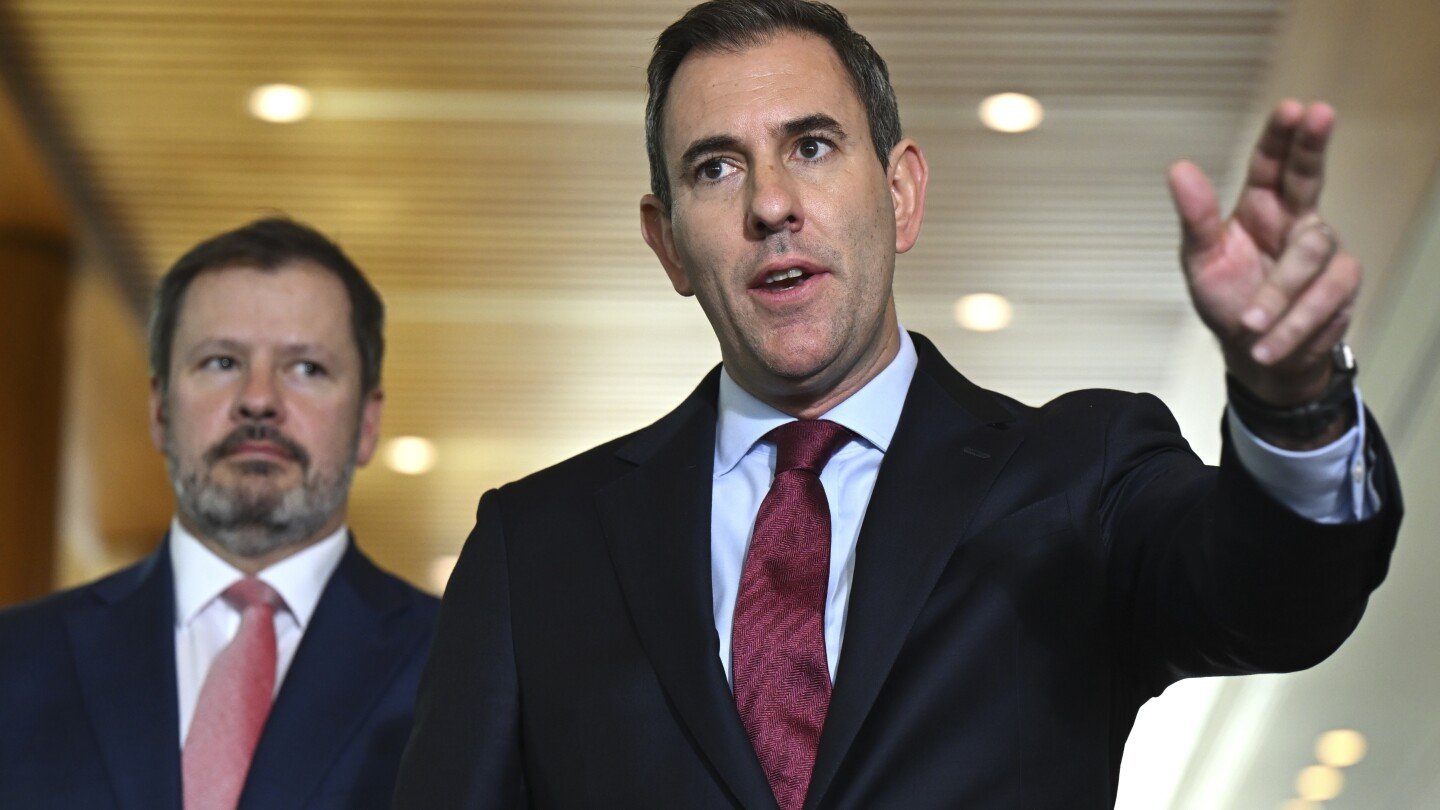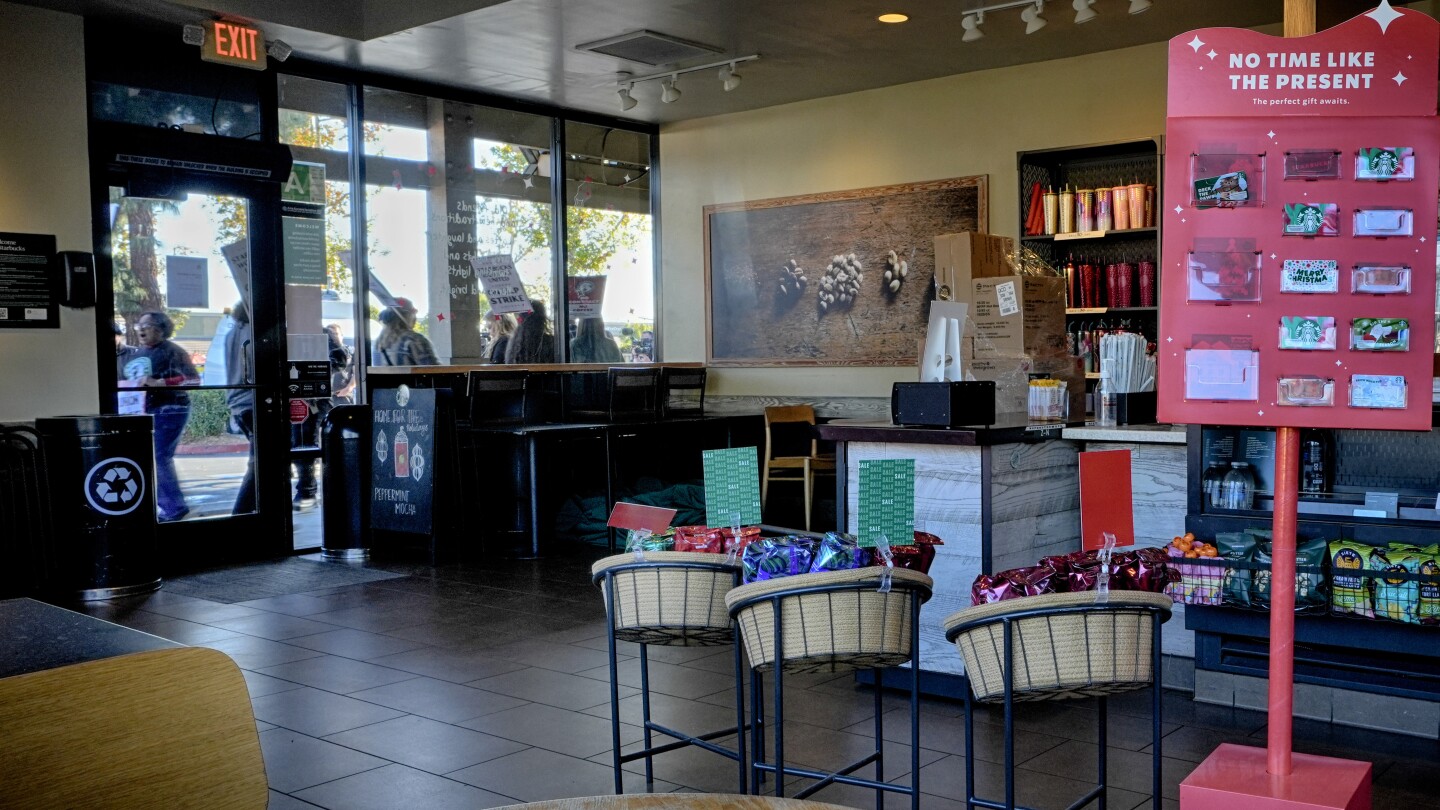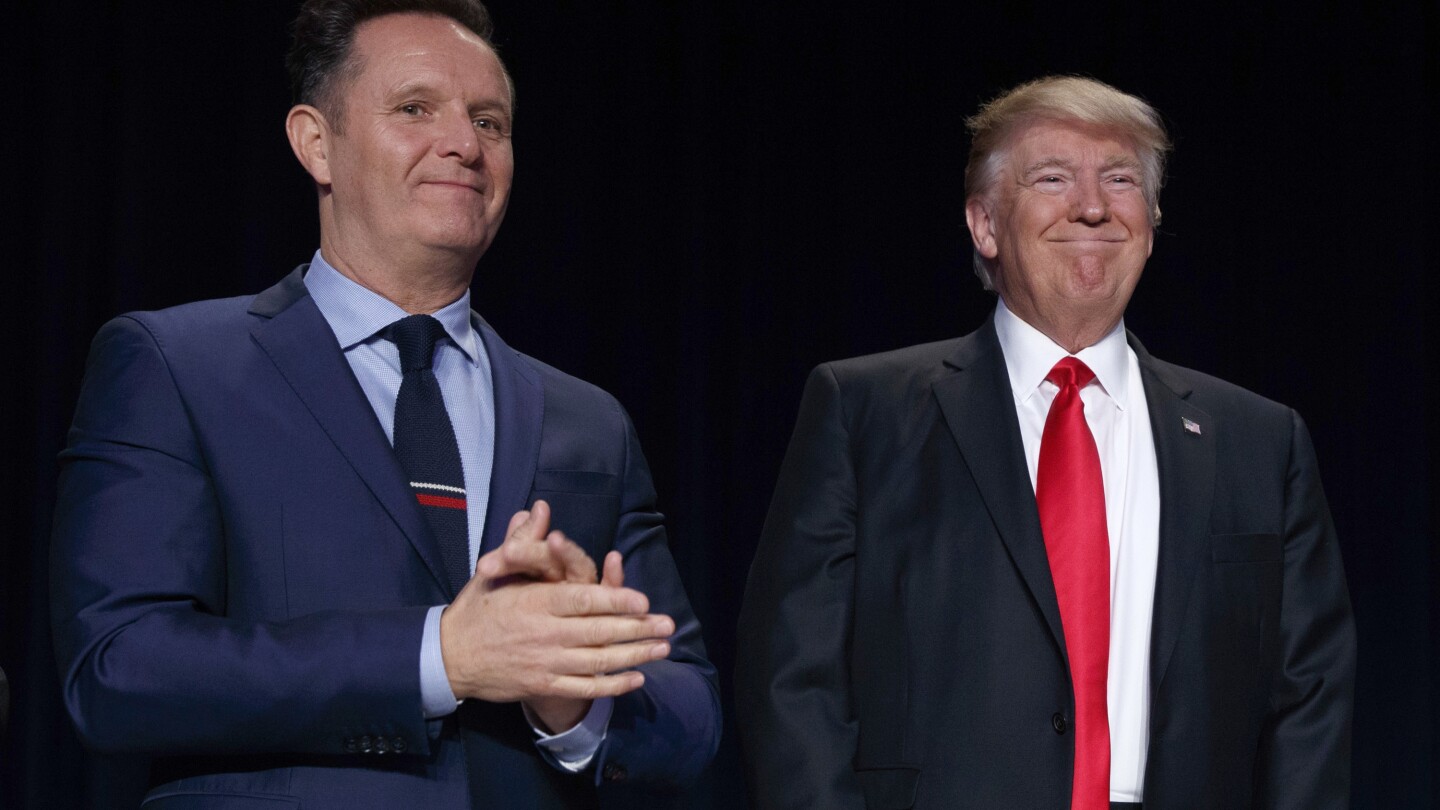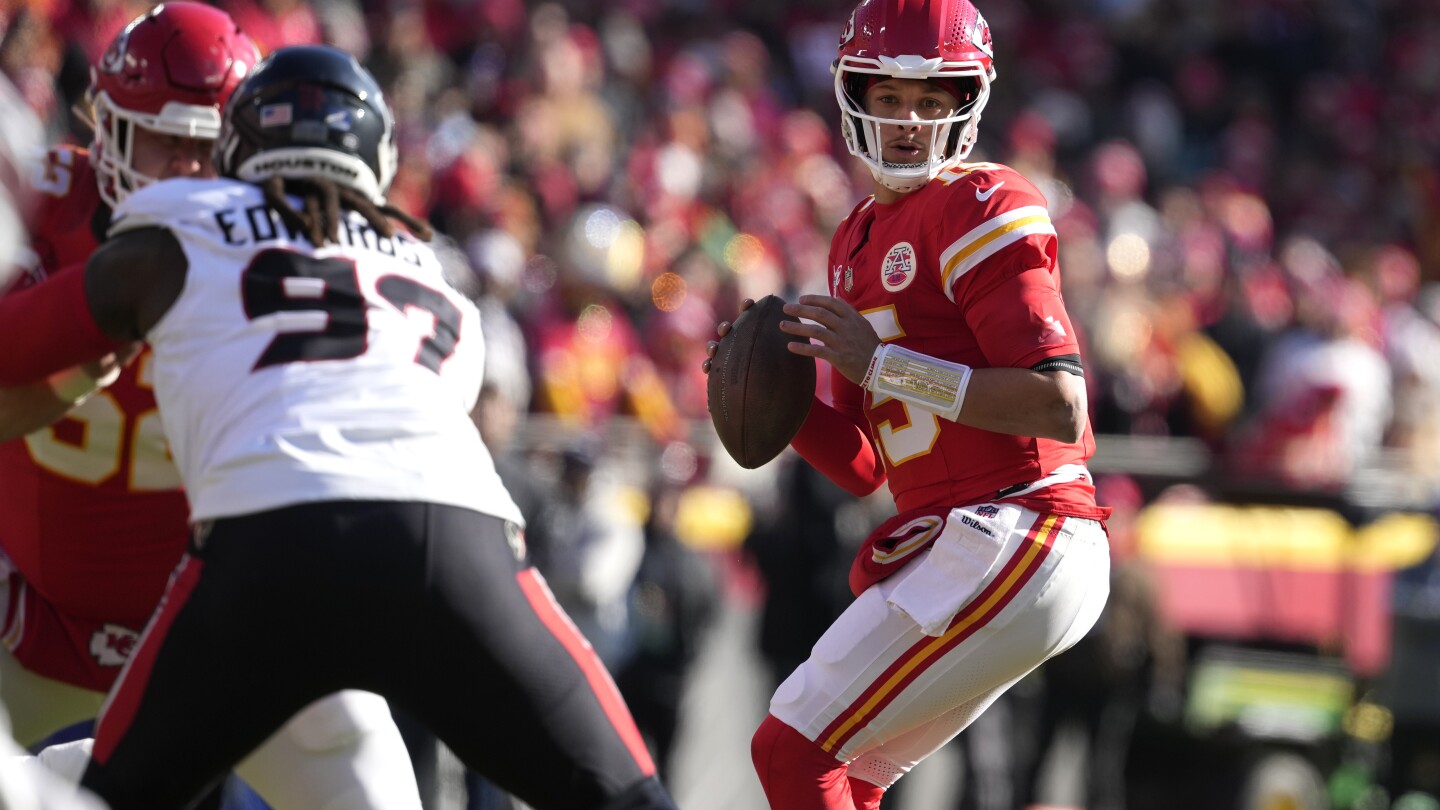Gunjan Banerji , The Wall Street Journal 10 min read 20 Dec 2024, 09:48 AM IST
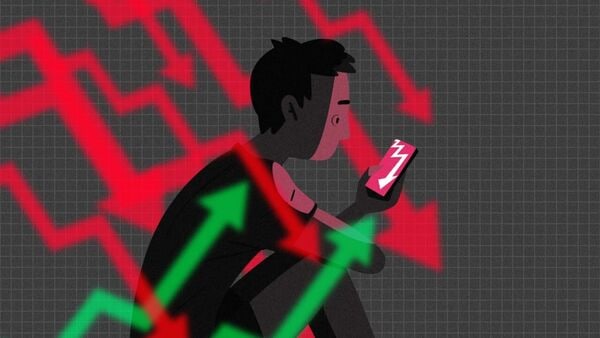
Summary
- Gamblers Anonymous meetings are filling up with people hooked on trading and betting.
A new type of addict is showing up at Gamblers Anonymous meetings across the country: investors hooked on the market’s riskiest trades.
At Gamblers Anonymous in the Murray Hill neighborhood of Manhattan, one man called options “the crack cocaine” of the stock market. Another said he faced hundreds of thousands of dollars in trading losses after borrowing from a loan shark to double down on stocks. And one young man brought his mom and girlfriend to celebrate one year since his last bet.
They were among a group of about 60 people, almost all men, who sat in rows of metal folding chairs in a crowded church basement that evening. Some shared their struggle with addiction—not on sports apps or at Las Vegas casinos—but using brokerage apps like Robinhood.
Many of the men, and scores of others around the country, discovered trading and betting during the pandemic boom that began in 2020. Some were drawn in by big wins in meme stocks and other viral stock sensations, leading them into even higher-octane wagers that offer the chance to put up a small amount of cash for a potentially mammoth return—or more often, a crushing loss.
Others bought and sold cryptocurrencies on apps that make trading as easy as ordering takeout on Uber Eats or toiletries on Amazon. In an age where sports betting has become an accepted pastime—accessible by the flick of the thumb on an iPhone app—they found the same rush betting on dogecoin, Tesla or Nvidia as wagering on Patrick Mahomes to carry the Kansas City Chiefs to the Super Bowl.
Doctors and counselors say they are seeing more cases of compulsive gambling in financial markets, or an uncontrollable urge to bet. They expect the problem to worsen. The stock market has climbed 23% this year and bitcoin recently topped $100,000 for the first time, tempting many people to pile into speculative trades. Wall Street keeps introducing newer and riskier ways to play the market through stock options or complex exchange-traded products that use borrowed money and compound the risk for investors.
Some who are desperate to stop trading are turning to self-help groups like Gamblers Anonymous. A GA pamphlet advises members to stay away from bets on stocks, commodities and options as well as raffle tickets and office sports pools. Sometimes members hand over retirement accounts to their spouses.
Modeled after Alcoholics Anonymous, GA dates back to 1957 and now has hundreds of chapters in every U.S. state. Attendees at local GA meetings from Ponca City, Okla., to Allentown, Pa., subscribe to a 12-step program. It begins with accepting that they are powerless over gambling and can include a financial review in a so-called pressure relief group meeting. New attendees are peppered with calls from others and latch onto veteran members who commit to helping them stay on track.
‘Hi, my name is Mitch’
More than 30 people interviewed by The Wall Street Journal, many of whom regularly attend GA meetings, said they’ve struggled with compulsive gambling in financial markets. At times, the trading led to mood swings, sleepless nights and even depression. Their trades—and spiraling losses—became a shameful secret that they kept from their partners or other loved ones.
I asked Gamblers Anonymous for permission to attend some meetings. Attendees introduced me to the groups at the start of the meetings, and I observed the discussions. Members introduced themselves by their first names, according to GA practices.
“Hi, my name is Mitch, and I’m a compulsive gambler,” one said at a GA meeting this month near Ozone Park, N.Y. “Hi Mitch,” the group responded in unison.
The suburban dad of three, slightly balding with a big smile, stood in front of more than a dozen members in a church basement. He is haunted by the rising price of bitcoin—and the riches that could have been his, he said. Up around 40% since Election Day, bitcoin prices are on a wild ride.
What would have happened, he wondered out loud, if he had just left his bitcoin in a digital wallet and handed it over to his wife?
Then he reminded himself and the group that he was never able to just buy and hold. “I needed more and more,” Mitch told the group. “I’m a sick, compulsive gambler. That’s why I keep making these meetings. I don’t trust myself.”
One attendee told him to stop eyeing cryptocurrency prices. Another reminded him of the toll trading had taken on his family and asked: “What’s more important, crypto or your kids?”
The entrepreneur, based in Long Island, N.Y., said cryptocurrencies caught his eye when he was in his late 40s and had gone more than 20 years since placing his last bet. He had sworn off gambling after a penchant for bold bets had led him to Gamblers Anonymous meetings in his early 20s.
He invested $100 in bitcoin and watched it soar. He poured thousands of dollars into ether and smaller, more speculative coins. Something kept him from sharing with his GA group that he was trading.
When his portfolio rose above $1 million, he thought to himself, “That’s four Lambos.” He flew to Florida to look at potential vacation homes for his family near Walt Disney World.
Within months, he found himself in a familiar cycle. The rush of adrenaline he got when he bought and sold tokens pushed him to trade more frequently—to the point where he was trading hundreds of times a day—and taking bigger risks. He would wake at 4 a.m. to monitor his portfolio.
He parked his car in the lot of a Long Island shopping plaza near his home to trade in isolation. His neck grew tense from hunching over the screen.
When crypto prices started tumbling, snowballing losses left him sullen. “Sometimes I would get a passing thought as I went to bed: I hope I don’t wake up in the morning,” he said. His portfolio had fallen around $1 million from its peak.
Desperate for a way out, he typed “crypto gambling treatment center” into Google. He confessed to his GA mentors that he had been gambling.
A spiking problem
Pennsylvania’s gambling hotline has fielded more calls tied to gambling in stocks and crypto since 2021 than it did in the prior six years combined. At a New York-based treatment center, Safe Foundation, clinical director Jessica Steinmetz estimates about 10% of patients are seeking help for addictions tied to trading. Before 2020, there were no such patients.
Lyndon Aguiar, a clinical director at Williamsville Wellness, a gambling treatment center in Hanover, Va., said counselors sit down with traders and delete dozens of stock, sports and financial news apps from their phones when they walk in the doors for its inpatient treatment program. The center has seen a 25% increase in gambling tied to markets since 2020, compared with the prior four years.
Patients might install Gamban, an app that locks individuals out of gambling on their phones. The app started blocking Robinhood and Webull in July 2021.
A Robinhood spokesperson said it includes “robust safeguards to help customers make informed decisions” and that individuals deserve the freedom to become stewards of their own finances. A spokesperson for Webull said the platform offers educational tools to foster responsible investment decisions.
New patients often suffer from withdrawal symptoms including severe anxiety and depression when they first stop trading, he said. Some start fidgeting or repeatedly tapping their fingers against a table, itching to place a trade.
Abdullah Mahmood, administrative coordinator of a gambling program at the Maryhaven addiction treatment center in Columbus, Ohio, said he has seen several clients enter the treatment center’s doors this year for trading addictions. Options are particularly problematic, he said.
Activity in options is on track to smash another record this year. Trading in contracts expiring the same day, which are the riskiest, has soared to make up more than half of all trades in the market for S&P 500 index options this year, according to figures from SpotGamma. These trades are more electric than traditional stocks, with the potential to rocket higher or plunge to zero within minutes.
Similar to wagering on how many points Mavericks point guard Luka Dončić will score in the first quarter of an NBA game, traders are increasingly using options to speculate how stocks will fare during the trading session, rather than at the closing bell.
This year, “a client came down to my office, suicidal,” Mahmood said. “He had lost $14,000 in just five minutes in options trading on the app Robinhood.”
The rise of apps
Doug Royer, 61, has been attending Mahmood’s group counseling sessions every Monday.
He initially entered the center’s doors for help with his drinking. Then, he saw signs for a gambling program while walking the halls of Maryhaven’s treatment center. Immediately, the six figures he lost trading came to mind.
After selling his house in 2022, he had poured thousands of dollars into investments like the Grayscale Bitcoin Trust, Lockheed Martin and Texas Pacific Land before amping up the risk with options trading. He traded in and out of companies such as Spirit Airlines and Estée Lauder, while borrowing on margin in an attempt to magnify his bets, brokerage statements show.
Eventually, he said he had almost no money left to trade with after losses in options and lotteries. He said he has been working part-time as a massage therapist near Columbus, Ohio.
“It’s very easy to make a lot of money,” Royer said. “It’s also easy to lose everything really fast.”
Addiction counselors say gambling in financial markets often goes undetected and can be tough to track because individuals confuse their actions with investing. Unlike sports betting apps such as FanDuel and DraftKings, most brokerage apps don’t post warnings about gambling or offer hotlines to seek help.
The proliferation of financial instruments, along with flashy brokerage apps that make them easy to trade, has also helped some gamblers convince themselves that they weren’t actually placing bets.
The National Council on Problem Gambling started including questions about investing in its annual survey in 2021, after its gambling hotline received an influx of calls during the meme-stock mania. The council’s executive director, Keith Whyte, said NCPG reached out to apps like Robinhood to suggest they adopt consumer protections ingrained in gambling apps.
“In some cases, the consumer protections in the gambling industry exceed that in the financial markets,” Whyte said.
Like the anticipation of sex or delicious food, a financial gamble like an options trade can flood your brain with feel-good chemicals, said Brian Knutson, a professor of psychology and neuroscience at Stanford University. The bigger the financial payout or tastier the dish, the stronger the rush. That anticipation can keep a trader going back to place another bet, forming a reinforcing habit, added Knutson, who has studied risk-taking in financial markets for more than two decades.
“It’s not just the release, per se, of the dopamine, but the speed of the release that’s reinforcing,” Knutson said.
An ultimatum
Chris Cachia, a 38-year-old power-plant technician in Ontario, Canada, got swept up with trading during the meme-stock mania in 2021. After turning around 7,000 Canadian dollars into roughly 50,000 trading stocks like GameStop and BlackBerry, he found short-dated stock options when he went hunting for fatter profits.
He scored some early wins. Before long, the thousands he made evaporated and his account sank into a deep hole. Yet he said he couldn’t walk away—he was consumed by a fear of missing out on the riches that others boasted about online.
One week while his wife was traveling, he holed up in his home office for days trading. He grew desperate for a win and bet more money than he had in his brokerage account. It didn’t work out.
The subsequent loss left him so depressed that he skipped his brother’s bachelor party.
“It was causing erratic changes in my behavior as I got deeper and deeper in,” Cachia said. “I was basically a full-out gambling addict.”
He said he tried to quit countless times since his trading ramped up during the pandemic, deleting brokerage and social-media apps from his phone, only to quickly download them again.
He wasn’t able to pull away until his wife threatened to leave him. “She gave me an ultimatum: You need to stop this, or I’m done,” Cachia said.
Write to Gunjan Banerji at gunjan.banerji@wsj.com
Jim Oberman and Elisa Cho contributed to this article.
Catch all the Business News, Market News, Breaking News Events and Latest News Updates on Live Mint. Download The Mint News App to get Daily Market Updates.

